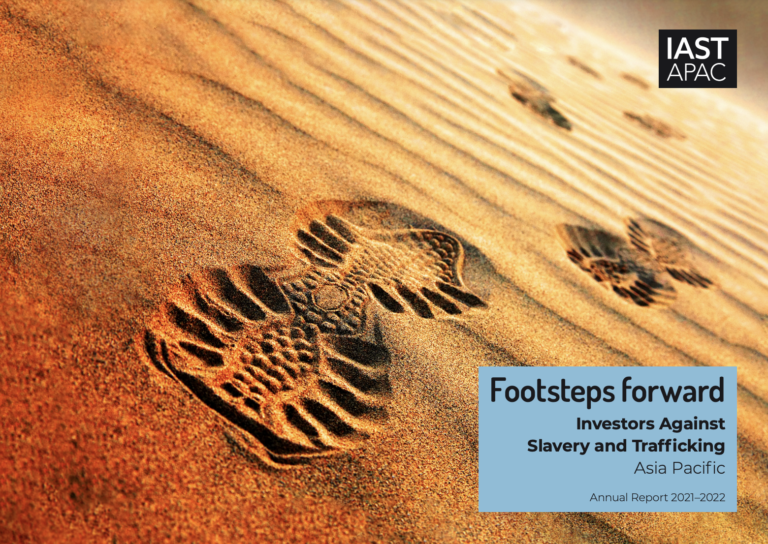The authors are a group of investors working to help end modern slavery, which currently affects an estimated 40 million people globally, with 70% of that number estimated to be in the Asia-Pacific region. IAST APAC was established in 2020, based on the belief that investors can play a meaningful role in creating a better world, through collaboration and co-operation.
The authors’ work is focused on engaging with companies in the Asia-Pacific region to promote effective action in finding, fixing and preventing modern slavery in operations and supply chains.
IAST APAC comprises 37 investors with AU$7.8 trillion in Assets under Management (AUM), together with the Australian Council of Superannuation Investors (ACSI), Walk Free and the Finance Against Slavery and Trafficking (FAST) initiative. See Appendix 1 for a full list of members.
By using our leverage as allocators of capital, and sharing the resources of our knowledge partners, Walk Free and FAST, we hope to build a sense of momentum among the companies we invest in, so that they can work with us on ending modern slavery.

